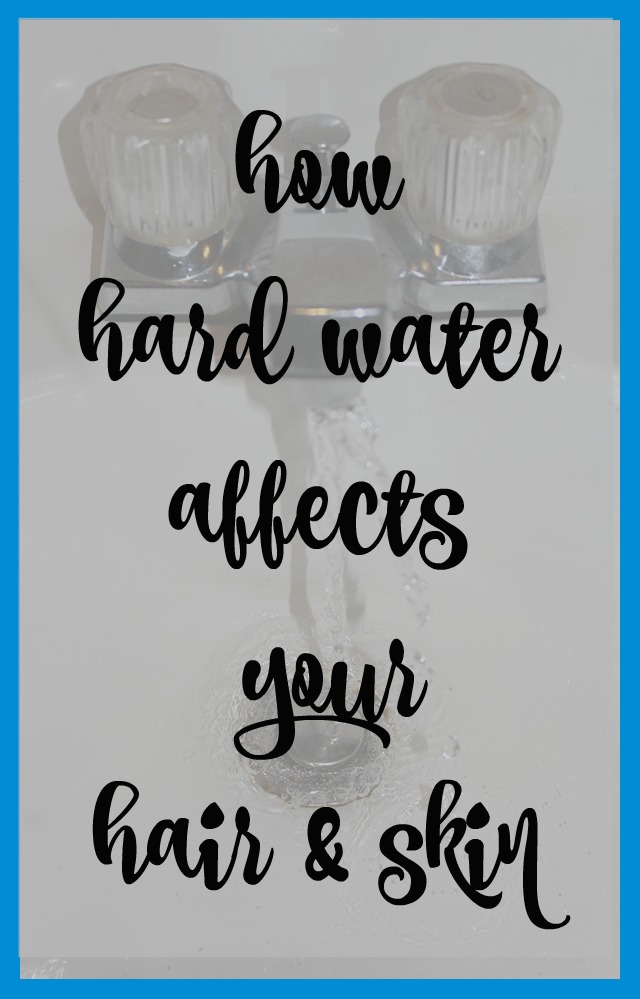Hard Water's Impact on Skin: Decoding the Effects and Solutions
Is your skin feeling unusually dry, itchy, or irritated despite your best skincare efforts? The culprit might not be your cleanser or moisturizer, but the water flowing from your tap. Hard water, a common household issue, can wreak havoc on skin health. This deep dive explores the impact of hard water on skin, providing actionable solutions to maintain a healthy, glowing complexion.
Hard water, characterized by high mineral content, primarily calcium and magnesium, affects millions of households. While not necessarily harmful to drink, these minerals can leave a residue on skin, disrupting its natural balance. This disruption can manifest in various ways, from mild dryness to more severe skin conditions.
The effects of hard water on skin are multifaceted. The mineral buildup can interfere with the skin's ability to retain moisture, leading to dryness and a compromised skin barrier. This weakened barrier makes the skin more susceptible to irritants and allergens, potentially exacerbating conditions like eczema and psoriasis. Furthermore, hard water can clog pores, contributing to acne breakouts.
Understanding how hard water interacts with skin is crucial for developing effective mitigation strategies. The minerals in hard water react with soap, forming a soapy film that adheres to the skin instead of rinsing away cleanly. This film can trap dirt and bacteria, further contributing to skin problems. Moreover, the minerals themselves can dry out the skin by disrupting its natural oils.
The impact of hard water on skin varies depending on individual skin type and sensitivity. Those with pre-existing skin conditions like eczema or psoriasis are particularly vulnerable to hard water’s harsh effects. Even those with typically healthy skin can experience dryness, irritation, and a dull complexion due to prolonged exposure to hard water.
While there aren’t direct benefits to having hard water on your skin, understanding its effects can lead to better skincare choices. For instance, knowing how hard water dries out skin helps you prioritize moisturizing and barrier-repairing ingredients in your routine. This knowledge empowers you to make informed decisions about water filtration and skincare products.
One of the most effective ways to combat the effects of hard water is installing a water softener or a shower filter. These devices remove the excess minerals, allowing your skin to cleanse and hydrate properly. Switching to gentle, hydrating cleansers and moisturizers specifically formulated for sensitive skin can also help alleviate dryness and irritation.
Another helpful strategy is to shorten shower times and use lukewarm water instead of hot water, which can further strip the skin of its natural oils. Applying a moisturizing cream or oil immediately after showering helps lock in moisture and reinforce the skin barrier. Finally, consider incorporating a chelating shampoo into your routine, as these shampoos are designed to remove mineral buildup from the hair and scalp.
Advantages and Disadvantages of Knowing About Hard Water Effects on Skin
| Advantages | Disadvantages |
|---|---|
| Empowered to make informed skincare choices | May require investment in water softening solutions |
| Improved skin health and appearance | Requires consistent effort in skincare routine |
Frequently Asked Questions:
1. Does hard water cause acne? It can contribute by clogging pores.
2. Can hard water make eczema worse? Yes, it can exacerbate dryness and irritation.
3. How can I tell if I have hard water? Look for mineral buildup on faucets and showerheads.
4. Are shower filters effective? Yes, they can significantly reduce mineral content in shower water.
5. What type of cleanser is best for hard water? Gentle, hydrating cleansers are recommended.
6. Should I avoid hot showers if I have hard water? Yes, lukewarm water is less drying.
7. Can hard water affect my hair? Yes, it can make hair dry, brittle, and dull.
8. How often should I use a chelating shampoo? Follow product instructions, typically once or twice a week.
Tips and Tricks for Dealing with Hard Water’s Skin Impact:
Rinse your skin thoroughly after showering to remove any remaining mineral residue.
Use a humidifier to add moisture to the air, especially during dry winter months.
Consider using a leave-in conditioner to help hydrate and protect hair from hard water.
In conclusion, understanding the impact of hard water on skin is paramount for maintaining a healthy and radiant complexion. From dryness and irritation to more severe skin conditions, the effects of hard water can be significant. By implementing the strategies outlined above – from installing water softeners to adopting a tailored skincare routine – you can effectively mitigate the negative impacts of hard water and protect your skin's natural barrier. Investing in these solutions not only improves your skin’s health but also empowers you to take control of your skincare journey. Don't let hard water dictate your skin's destiny. Take action today and experience the transformative power of soft, healthy water for a noticeably improved complexion.
Unlocking fc24 career mode building a dream team on a budget
Navigating the waters a guide to selling a financed boat
The unexpected charm of a 10 sided shape exploring the image of a decagon














:max_bytes(150000):strip_icc()/TheSpruce_WhatisHardWater_colorv1-71c4c7ba876646638980256db096a84e.png)